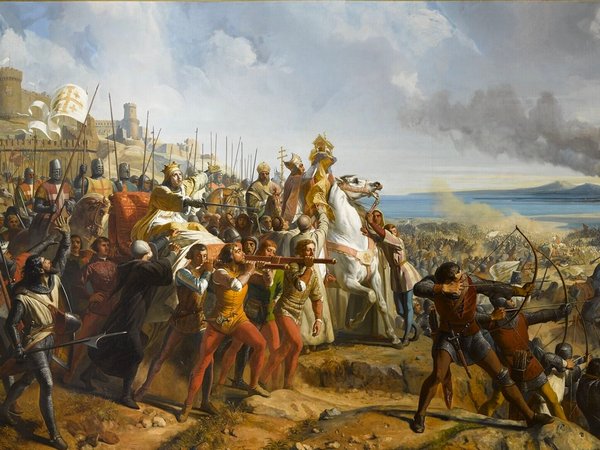Socialist morality and war
Some believe that the struggle for socialism is a moral crusade against the evils of capitalism or, more usually, against the promoters and practitioners of capitalism. Bankers, hedge fund managers, media moguls, multi-national CEOs, City traders, politicians etc. have all taken their turn as incarnations of immorality and even evil. Every morning you can hear that archetype of leftist moral outrage called James O’Brien indulging in his endless diatribes denouncing the latest demons of the right on his LBC radio show. Is this merely an impotent exercise in self indulgence or are political debates, at their heart, always primarily a conflict between right and wrong or even good and evil?
Moral sensibilities seem to have always been part of the human psyche. Perhaps because, as a social species, we are aware that our individual survival depends on the survival of our communities we have developed a level of interaction that demands the ability to empathise with others. When we suffer, or perceive the suffering of others, we seek the cause. If this cause is the activity of another we can regard them as antisocial and immoral. This perspective insists on us all being moral agents who have a level of free will which enables us to choose between right and wrong. Although there have been infinite cultural varieties of what constitutes moral values all of them derive from the belief in the individual’s potential and actual ability to control his or her actions. Control is the key concept here because if we deny its existence on a personal level we are in danger of delegating it to others who are considered to be our moral superiors and so create a religious hierarchy. The conscience (Freud’s super-ego) and its malicious companion guilt together with the fear of eternal punishment still haunt even the most secular of moral value systems. So what effect has this ideology had on politics and what is the historical evidence for its efficacy?

One of the more interesting historical attempts to synthesise morality and politics within one ideology was that of Christianity. The control it offered to the Roman empire proved to be so seductive that it was adopted by Constantine and the successive Germanic ‘barbarians’ who took over during the ‘dark age’ and later medieval period. All through its rise Christianity had many glaring contradictions with the realities of power in the warrior states that adopted it. One of the most obvious was the commandment that ‘thou shall not kill’. Sanctions against violence and murder are universal in any moral system worthy of the name so how could this be coherently absorbed by a society based on violent exploitation (slavery, serfdom) and imperialist expansion (destruction and pillage). This came to a head as Europe suffered the depredations of warlords whose bands of knights terrorised everything and everyone. The Pope came up with an ingenious solution – he would send these troublesome knights to Palestine to reclaim the ‘Holy Land’ where the murder of the indigenous population was not only rewarded, it guaranteed the forgiveness of any previous mortal sins and promised eternal paradise in the next life.
A moral system had been manipulated to serve the needs of the powerful, and today we see the same justification for war. Russians are demonised and the defence of Ukraine is considered a crusade against the evil of Putin. Lines on a map drawn by the powerful constitute a ‘sovereign state’ which is regarded by many as a kind of moral absolute that must not be violated. Of course this is nonsense since wars are continually fought in defiance of borders created by others. But it proves just how pliable a moral system can be when faced with political reality.
Again we see that the central conceit of a moral approach to politics is the illusion of control. Socialists see political, religious or moral systems as just elements within an ideology that seeks to justify the power and wealth of a parasitic minority that has historically emerged in private property society. These systems develop independently of those who make them work, and the values and struggles of those people are irrelevant unless they become conscious of this. Such consciousness can only develop when they become aware that the system they are part of is not in their interests. They can finally liberate themselves from the shackles of history and have a chance, for the first time, to impose true and authentic moral values. The anger and frustration caused by trying to impose such values on an amoral economic system like capitalism is replaced by conscious participation towards resolving the class struggle, which alone can make this possible.
Socialists seek to understand the origin of power, who has it and how it is legitimated. There is no legitimacy to be found in the relationship between wealth and power, as the morality of property relations pretends. We can transcend the superficial and superstitious origins of that morality and replace it with a fully democratic system within which a mature community can decide what rules and values it wants. The voice of the individual will finally be heard and the shrill hypocrisy of the defenders of amorality will be silenced.
WEZ
Next article: Cooking the Books 2 – Wage-price spiral / Lethal delusion ⮞
